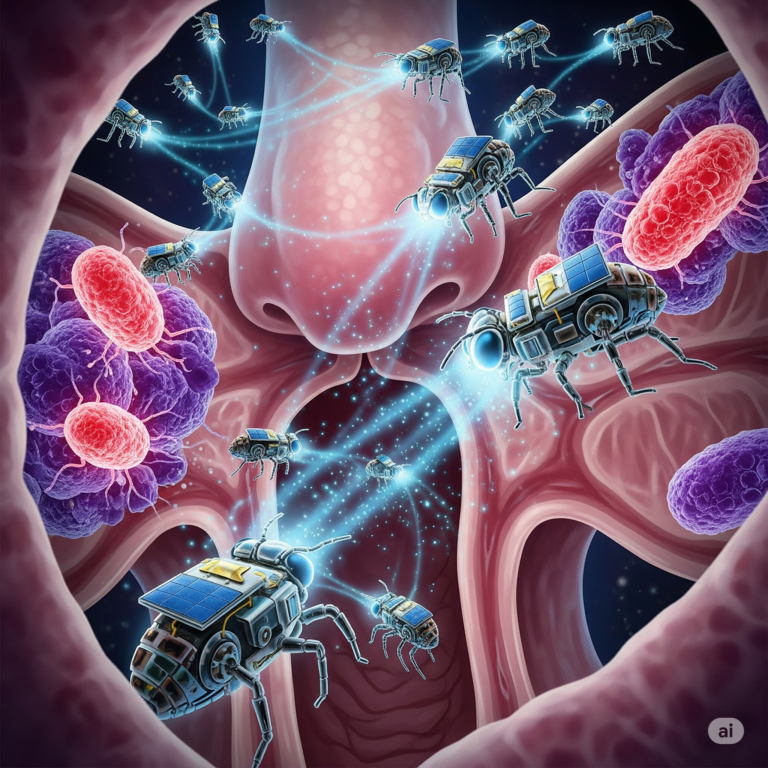Introduction
The fusion of biotechnology and wearable health tech is revolutionizing how genetic conditions are diagnosed and treated. With advancements in CRISPR gene-editing technology and the rise of smart wearables, healthcare is becoming more personalized, proactive, and accessible.
This article explores how CRISPR and wearable health devices—such as those used in NBA partnerships for athlete performance monitoring—are changing the landscape of genetic treatment, disease prevention, and health optimization.
Understanding CRISPR: A Breakthrough in Genetic Editing
1. What is CRISPR?
- CRISPR (Clustered Regularly Interspaced Short Palindromic Repeats) is a gene-editing technology that allows scientists to modify DNA with precision.
- Originally discovered in bacteria, it has now been adapted to edit human genes to correct mutations.
- CRISPR has the potential to eliminate hereditary diseases and improve overall human health.
2. How CRISPR is Used in Medicine
- Correcting Genetic Disorders: Treats conditions like sickle cell anemia, cystic fibrosis, and muscular dystrophy.
- Cancer Research: Helps in identifying cancer-related mutations and designing targeted therapies.
- Infectious Disease Treatment: Has potential applications in fighting HIV, malaria, and antibiotic-resistant bacteria.
- Personalized Medicine: Could tailor treatments based on an individual’s genetic makeup.
Wearable Health Tech: The Rise of Smart Devices in Medicine
1. What Are Wearable Health Devices?
- Smart, sensor-driven devices that monitor vital signs, fitness levels, and overall well-being.
- Include smartwatches, fitness trackers, biosensors, and AI-powered health wearables.
- Provide real-time data for disease prevention, health monitoring, and performance optimization.
2. NBA Partnerships and Wearable Tech
- The NBA has partnered with wearable health tech companies to monitor athletes’ heart rate, muscle fatigue, hydration, and oxygen levels.
- AI-driven analysis helps optimize training regimens and prevent injuries.
- Wearables can detect genetic predispositions to conditions like cardiac arrhythmias and musculoskeletal disorders.
3. How Wearables Aid in Genetic Condition Management
- Smart biosensors can detect early signs of genetic diseases.
- Wearables track glucose levels for diabetes, oxygen levels for respiratory conditions, and ECG for heart issues.
- Personalized AI-driven health insights help individuals manage conditions proactively.
The Intersection of CRISPR and Wearables in Healthcare
1. AI-Driven Precision Medicine
- AI-powered wearables provide real-time patient data, allowing doctors to personalize CRISPR treatments.
- Enables predictive analytics, helping detect potential health risks before symptoms appear.
2. Remote Genetic Monitoring
- Wearable devices can collect DNA-based biomarkers and send them to cloud-based platforms for CRISPR-based analysis.
- Helps in early disease detection and preventive healthcare planning.
3. Enhancing Treatment Efficiency
- CRISPR gene editing combined with wearable health tracking ensures treatments are effective and personalized.
- Wearables monitor patient responses to gene therapies and adjust medications or interventions accordingly.
Potential Applications of CRISPR and Wearable Tech
1. Revolutionizing Disease Prevention
- Genetic predisposition tracking allows preventative treatments before diseases manifest.
- Helps in monitoring hereditary risks for cardiovascular diseases, Alzheimer’s, and metabolic disorders.
2. Enhancing Athletic Performance
- Athletes using wearable biosensors can detect genetic advantages or risks.
- CRISPR modifications might one day be used for muscle repair and injury prevention.
3. Impact on Public Health and Remote Patient Monitoring
- Smart wearables integrated with CRISPR research can help monitor and manage pandemics.
- Offers remote diagnostics for people in rural or underserved regions.
Ethical and Regulatory Challenges
1. Privacy and Data Security
- Wearables collect vast amounts of genetic and biometric data that must be protected.
- Blockchain technology and encryption methods can enhance data privacy.
2. Ethical Concerns in Gene Editing
- CRISPR raises questions about genetic modifications, designer babies, and unintended mutations.
- Global regulations are being developed to ensure ethical use of gene-editing technologies.
3. Accessibility and Cost
- Advanced gene therapies and smart wearables are expensive and not widely available.
- Efforts are needed to make these technologies accessible to all socioeconomic groups.
Future of CRISPR and Wearables in Healthcare
1. AI and Machine Learning Integration
- AI-driven health assistants will provide real-time genetic health advice.
- Predictive models will improve disease prevention and treatment strategies.
2. Expansion of CRISPR Applications
- Ongoing research could lead to CRISPR treatments for neurological disorders and age-related diseases.
- Potential future applications include enhancing immune responses and reversing genetic mutations.
3. Smart Wearable Innovations
- Future wearables may include nanotechnology-based biosensors that continuously monitor genetic changes.
- AI-driven real-time CRISPR-based interventions could adjust treatments dynamically.
Conclusion
The combination of CRISPR and wearable health technology represents a revolution in medical science. From early disease detection and personalized treatment to enhanced athletic performance and proactive healthcare, these innovations are shaping the future of medicine.
As technology advances, ethical considerations, accessibility, and regulatory frameworks must evolve alongside. The fusion of biotech and digital health solutions has the potential to improve lives worldwide, making personalized, preventative healthcare a reality for future generations.









+ There are no comments
Add yours